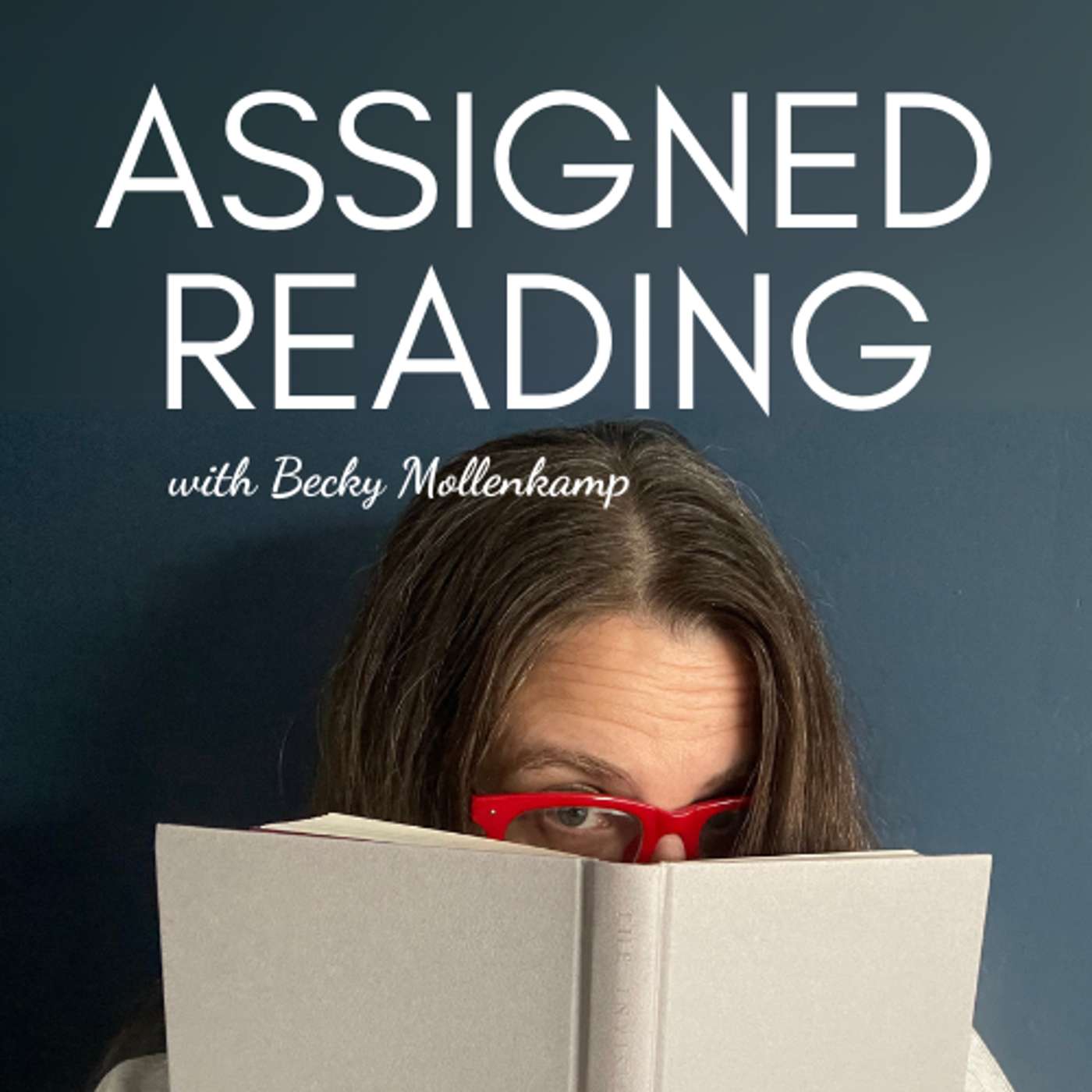
Mindset Unlimited: Tips, Tools, and Inspiration for Women in a Time of Change
Your Mindset Unlimited is a podcast for women navigating professional and life transitions who are seeking to release learned limitations and build a more holistic, liberatory version of success.
Your Host, Valerie Friedlander, is an ICF certified coach, sociologist, intersectional feminist, artist, business owner, and mom. Based in Chicago and supporting clients world-wide, she helps high-achieving women transition into their next chapter of life with clarity, confidence, and self-compassion. lead with intention, and create their definition of success that honors all aspects of their life.
In this podcast you'll find tips, tools, and inspiration to help you release the internalized limitations cultivated by our social system imbalances and lead your life with more ease and joy.
Some of the topics you'll find here are: finding fulfillment, habit shifting, motivation, time management, money mindset, stress management, impostor syndrome, productivity, work/life balance, communication, boundaries, leadership, social activism, burnout, building a business, motherhood, and more.
You can find out about Valerie and her work at www.valeriefriedlander.com
Follow her on most social media @unlimitedcoachval
Sign up for her email list at www.valeriefriedlander.com/signup
Books referenced on the podcast can be found on Bookshop.org
https://bookshop.org/lists/unlimited-podcast-book-recommendations
Mindset Unlimited: Tips, Tools, and Inspiration for Women in a Time of Change
Creating Healthy Relationships
Use Left/Right to seek, Home/End to jump to start or end. Hold shift to jump forward or backward.
Creating healthy relationships in all areas of our life is the focus of this season of Unlimited. A relationship is how we relate to another person, place, thing, or even concept. How we relate to ourselves is at the core of how we relate to others. Yet, how we understand and relate to ourselves is also built from those external relationships. Unfortunately, most of us haven’t been taught how to cultivate healthy relationships let alone experienced examples of them. In many cases we need to first unlearn harmful ways of relating before we can learn healing ways of relating. First, we’ll lay a foundation of understanding healthy and unhealthy relating. Then, over the next several months, we’ll explore how it applies to all areas of our life.
In this episode of Unlimited, I’m kicking off the focus of season 4 by setting a foundation for creating healthy relationships.
Some of what I’ll cover in this episode include:
- Understanding relationships beyond the interpersonal
- Qualities of healthy relationships like trust, honesty, communication, and self-awareness
- Relationship red flags like control, disrespect, imbalances, and hurtful language
- Building self-trust and growing through conflict
- What to expect in Season 4 of Unlimited
LINKS FROM THIS EPISODE:
Signs of a Healthy Relationship
Tips for Building a Stronger Relationship
Ask a question or share a topic for the podcast
Apply to be coached on the podcast
CONNECT WITH VALERIE:
Website
Instagram
Facebook
Free Resources
Get email updates
Hello, my friends and welcome back. It's season four, oh my gosh, I can't believe it's season four. It's been three years now. And we are entering a fourth. That is mind boggling to me. And I think I say that just about every start of a new season. Because I really didn't know what I was getting into when I started this podcast. I had been told, you should start a podcast and I was like, Okay, here we are. And, you know, I think that's true for most things. When you start something new, you can hear from other people, well, this is what it was like for me. And these are the things that work or don't work, and you then get all this information, but you don't really know what it's going to be like for you, until you start until you do the thing until you engage whatever it is. And that is kind of the focus of what we're doing this season. Because this season, I am going to focus in on relationships. And yes, everything is about relationships. So all my previous episodes are really about relationships. However, in this season, that is the focal point, we are really emphasizing being in relation and what does that look like. And that is why it's all different is because if you haven't done it, then it is a new relationship. Even if other people have done it, what their relationship to whatever it is, or whoever it is, or wherever it is, is theirs that is their relationship to that your relationship will be different because you are a different person. There may be crossovers, but ultimately, it's you it's your experience of life, it's your experience in relation to something someone somewhere. And that's what we're going to focus on is what does cultivating healthy relationships, in different spaces of our life look like? What can we explore in that? How can we understand that? How do we understand what that is like for us, and then also when we need to do some healing in a relationship. So in this episode, we are going to explore what is a relationship, I'm gonna dig into the definition because you know me word nerd. We're gonna talk about qualities of healthy relationships, red flags, and relationships. And then of course, what to expect in season four. I want to let you know, before we get started that I do have some exciting new things this year, within my coaching practice, as I mentioned, at the end of season three, I am working on having workshops at the end of every month or there abouts. So that is available on my website. On my homepage, if you scroll to the bottom, I have everything listed because I want it to be easy to access. I'm also offering group coaching, open group coaching, normally, I only do like cohorts, where you make a commitment to a certain period of time, and it's a small group. In this case, it's still a small group, I'm only maxing 12 people. So keeping it small. However, it's once a month, the beginning of the month, you can sign up just for a session, if you're like, I really want to pick his brain about something I want help with discernment around something or I want to connect with other people who are doing seeking like I am in life. That's the space for you. And that is set at pay what you want. So you don't have to pay anything, you can just show up and be like, What is this? Is this worth it? Do I actually want to spend my time here? And then if you're like, that's amazing. I always appreciate your support in the work that I do. But that is an experimental space to see. Is this something you'll want? So that's available for you. The workshops also are offered at sliding scale. So there's a base price and then you can add on I do have suggested amounts, but that is how I'm making these accessible for all the people who are looking. So if you're listening to this while later and you're like well, I don't see it on your website, reach out. I'm always happy to hear from you and to take your input of like we want this back. I will absolutely see what I can do to make that happen. I am also of course still offering one to one support. So if you're looking for a private coach, please reach out I'm happy to chat and see if that is a good relationship to support you in where you want to go and what you want to do. And now without further ado, let's get started. Hey there I'm Valerie Friedlander, Certified Life business alignment coach and this is unlimited this podcast Just bridges the individual and the societal, scientific and spiritual, positive and negative, nerdy and no, there's just a lot of nerdy. Come on board and let's unlock a life that's as badass as you are. So relationships, let's talk about it. I went ahead and looked up the word relationship and was just thinking about like, what is this word because oftentimes, when you look up relationships, you're thinking romantic relationships, or even person to person relationships at the very least. Well, when I talk about relationships, I'm talking about all the ways that we relate or we are in relation to the things in our life, the people in our life, the places in our life, all that. So what does Merriam Webster online have to say about relationships? Well, relationship is listed as a noun, it is the state of being related or interrelated, which is essentially like being connected. The first known use of the word relationship was in 1741. And it was through that definition. The other two definitions listed are the relation connecting or binding participants in a relationship, and a state of affairs existing between those having relations or dealings. So it's really about connection. And while we think about connection, oftentimes in terms of people, what we connect to is everything we are in relation to all things I'm in relation to you, I'm also in relation to the work that I'm doing. I'm in relation to the chair I'm sitting on, there's a relationship between us and all the things and most of the time, we're not thinking about those relationships, most of the time, we are just doing them, we are not thinking about them, we're not reflecting on them, we're not consciously engaging them. And there's a good reason for that we only have so much energy. And the part of our brain that really is thinking that we're thinking we're thinking is only 5%. And that decider that reflector, as it were, takes up the most amount of energy. So most of our brain is going to go, we need to send that to the autopilot part, because that part uses less energy. So we tend to just do what we do. This is where the patterns come in. And I talk about this frequently, you will continue to hear me talk about this frequently, we have patterns. Because it simplifies our interactions, it simplifies what we do, we don't have to expend as much energy. So our brain is constantly connecting dots for us to facilitate our relationships as it were. But sometimes, a lot of times those relationships are the facilitation of those relationships isn't necessarily what we want it to be. And that's because most of us haven't learned healthy ways of relating of being in the world of relating to other things, but also relating to our self, which is the foundation of how we relate to everything else. So that is one of the reasons why I wanted to focus on relationships for this season is because there's so much heaviness in the world right now. And a lot of it, if not all of it ties to how we know to relate to each other. Whether we feel in conflict with another, whether we know how to bridge that conflict or use that conflict as growth versus as if I'm not right, then I'm not okay. And therefore you have to be not right or wrong. For me to be okay, we're we're pitted against each other, and it's causing so much pain in the world. It can be a little overwhelming. While I'm not equipped to deal with that, in a podcast, I want to do my part to try and help us do better for each other for the world, to grow to be able to change the way we know how to relate so that we can be in healthier relationships with life and all the pieces that entails. So what is a healthy relationship? Let's talk about it. So I was curious to see what people are already talking about. And I pulled up a couple articles one unhealthy line and one from the Cleveland Clinic that talks about relationships. And of course, as I mentioned before, when you look up relationships, a lot of times they're talking about romantic relationships. or at least like intimate close relationships. So, in looking at what they have listed, I was like, Well, alright, let's let's pull these together, because I think all of these can apply, in some ways, at least the roots of them to all the relationships. So a healthy relationship is built on trust, which is built on honesty and integrity. So honesty is saying what I believe what is what is true for me, the what I understand. And integrity is doing what I say I will do. So if I say I'm going to do something, then I follow through, because that builds trust. And then there's accountability. Accountability is how we stay true to those things. So if somebody says something, and then they don't follow through accountability addresses that, so that trust can be rebuilt, if it is breached, that's what accountability is there for. And this isn't like punishment, this is natural consequences. Well, if this is going to be how this is going to be, this is what I need to do to be okay. That is rooted in me knowing myself, in me being able to be true to that. So that stems from that self knowledge, that self awareness so that I can have one of the other things which is interdependence, where my self esteem, my self worth, my self knowledge isn't dependent upon somebody else, or something else to be a particular way that I know myself. And I'm learning myself, I have that self connection. So that self relationship, which is that foundation of all other relationships. So how we breach that is through breaching trust with ourselves, when we don't listen to ourselves, when we don't engage and do what we say we will do when we're unreasonable with ourselves. So that ties to some of the other things that are listed like communication, communication, being that I have a conversation that I'm willing to communicate with, whatever I'm in relation with, so actively listening, that is listening with curiosity, rather than judgment, that looks like seeking to understand versus to be right. So much of our conditioning is around for me to be okay, I have to be right. If I'm not right, then I'm not okay. So you have to be wrong, so that I can be right so that we can be okay. And this is where that conflict comes in, where we're not actually building towards solutions. We don't show up our survival mode kicks in when there's conflict, instead of our curiosity, instead of our executive brain where we can go, oh, what's going on here? Where where's the disconnect in this relationship? What does it look like to bridge that? What do I need? What do you need? How do we work together and collaborate to grow. So that means that one, there has to be a commitment to the relationship that I am committed to actually showing up to doing what is difficult, because it does take additional energy to show up and listen and be curious. Ultimately, long run, it takes less energy, if we can do that. But because so many of us have that conditioning to go in survival mode, we have to use extra energy to pull ourselves out of survival mode to care for ourselves to figure out what we need to care for ourselves so that we can step out of survival mode, so that we can metabolize our emotions so that we can step into our executive brain and actually have a conversation around finding solutions so that I'm not in fight flight, freeze or fun. And we can't build from there because that that relationship with myself, where I'm either I'm locked up, I'm pulling in, or I'm fighting, or I'm focused on you to make you Okay, so that I can be okay. Like all of those things. There's a disconnect with my, I guess, what do people call it like your Higher Self, your inner truth, your inner light, I have trouble with a higher lower self, just because I think there's a lot of judgment there too. There are very good reasons why we have a survival mode and why that gets activated, unfortunately, because we never learned to cultivate that executive functioning and we learn to operate and to get what we need in that survival mode space or through the emotional manipulation. That's what we know to do. So that's what our autopilot brain does. So a lot of this is learning how to access those other parts of our brain, those more evolved parts of our brain really, to engage to communicate Hate to be curious to seek to understand versus to be right to seek solutions. So oh, there's a gap here, we are not on the same sides of this rift, we're on other sides. What does it take to build a bridge? Some of this is kindness, caring, caring that somebody else cares. Even if it's not something that's important to me, knowing and being able to hear and receive that it's important to them, being able to forgive when something is breached, if there is actual, like, we're going to do something different. It's taking space, it's taking space for that transition, because knowing what our programming is to go into survival mode until we cultivate a better access to the executive functioning, or until we learn to give ourselves the space that we need to care for ourselves so that we aren't depleted and thus have access to that executive functioning. Because if we're depleted, it's much harder to access, we are naturally much more prone to being in survival mode, to be able to push through so being able to give ourselves space. And then being able to have that self knowledge, that self trust, to step into an attitude of learning. What we often these days referred to as growth mindset, which is, okay, how do we learn? How do we grow? How do we bridge the gap? What do we need to build between these two ways of seeing things between these two aspects between whatever it is that there's a rift, and or to heal, if there's a breach and trust, and that's where accountability comes in accountability helps build the bridge of like, okay, I see what I did, I see the mistake that I made, the thing that didn't work, the thing that created harm, the thing that created the Rift, and I'm willing to do this, to overcome that, to bridge that to heal that whatever that looks like. So willingness to step into progress. So those are foundational pieces of healthy relationships. Being able to communicate, really listening, seeking to understand versus to be right is a big one, and building trust, building trust with ourselves, building trust with others, through integrity, and accountability. And to do that, we have to have that attitude of learning, and the kindness for ourselves as we unlearn automatic ways of doing things that aren't serving us anymore. And the space to really learn about ourselves and to connect to ourselves to build that self relationship. And I believe that each piece of this while it is absolutely true that it's needed in interrelationships between human to human or love relationships, or whatever. This is also true when it comes to building your relationship with yourself. And just about anything in your life, how you show up to any relationship, anything you are in relation to, even if it is your life, as a whole. So let's talk about some red flags, red flags and relationships. Now, of course, these were originally written, I think it was the Cleveland Clinic article, I'll have both articles linked, so you can look at them if you'd like. But they were focused on romantic relationships. This is about just relationships as a whole, I think is true red flags, controlling someone trying to control someone else. But I would go so far as to also say, this is control as a whole. So much of what we've learned about controlling is harmful. It's either controlling ourselves versus listening to ourselves versus nurturing ourselves. We try and control ourselves that can breach trust with ourselves, where we stop hearing our intuition. And that can have happened a long time ago. So it takes rebuilding it I have a whole episode about control may not be the answer, and how we need to cultivate care. So controlling notice where that shows up where you're feeling controlling in any relationship. Disregard is another one not being heard having boundaries crossed where conflict feels unsafe, and it is important to differentiate where conflict feels unsafe because as I mentioned, most of us have learned that conflict is unsafe, that conflict is dangerous. There's a lot of stuff in there that we pick up from society of like, conflict is bad. So learning how to create safe conflict, how to do restorative conflict, that is key. But if there's no effort being put into that, if there's disregard for what someone else is saying they need, including yourself. If your body is talking to you, and you're ignoring it, you're trying to control it instead, whether somebody is doing this to you, you're doing this to somebody else, are you doing this to yourself, that's a red flag, ignoring where you're not spending time in that relationship. Or you say yes, but there's no action right out of integrity. So those are red flags. And I see this a lot when people talk about wanting to work on their health, or fitness or whatever, the lack of relationship to their physical self. And this is one of those red flags, I don't want to spend time with myself, I should spend time with myself, I'm controlling myself in this versus I'm caring for myself, I'm not actually listening to my body, listening to what my needs are caring for that self. Hearing that self being curious about that self finding that bridge of this is what I'm looking for, what do you need to get there. And when I say you, I mean you yourself. So whether it is an internal relationship, or an external relationship, that lack of listening, is a red flag inequality, or lack of balance, I would actually say equity. Because there are times where that fluctuates. Of course, this often applies to interpersonal relationships, and romantic relationships, partnerships, where there's an unequal balance, we talk about the mental load, and emotional labor, and all of those things that come in, particularly put a burden on women, there's a lot of societal structural things that influence that. That is definitely something we're going to be talking more about, because that's a huge topic, but that there may be times where it looks different, I kind of think of like the lava lamp where sometimes the bloopers up high, and sometimes the Bloop is down low. And there's not like a balance. It's just, there's a flow there. But there is consideration and listening. So I think if those other pieces are there, that piece has a lot of balance, but we have to factor in our relationship to society and societal messages. So that's a big one. But if there is a lack of balance, that can be a red flag, that something needs to be healed or engaged or growth needs to happen. And that, of course, verbally hurtful if there is harmful. Speaking to that is another red flag. And that applies to your own self talk, of course, not just other people talking to you or you talking to other people. But that is an important thing to notice. I had a client recently who, who was talking about what worked on vacation, and she said, Well, this is gonna sound bad, but having somebody else cook me breakfast. I'm like, what about that sounds bad. And we uncovered that there was an underlying story, that having someone do things for her was bad. And so that's something to look at, of like, Oh, if there's this story, and I'm telling myself this, then I'm blocking, receiving because it's bad. Not only are other people maybe not doing it, so I don't have this access. But if I'm blocking, receiving, then I'm not going to even let that in or when that does happen, I'm not going to feel the care of it. Just like when you feel guilty for taking time for yourself, you are depleting yourself in the process of trying to care for yourself so you don't get the full value of that care. That works. Same for collective care, too. If someone is wanting to give you something or you're receiving if you're blocking it because you have a story that it is bad to receive, then you're not going to feel that rejuvenation or that care because you're blocking receipt of it. So noticing that self talk, noticing the stories that you tell us are they supportive stories, or are they hurtful stories, though thing we hear the most about is like what do you say when you look at yourself in the mirror, but that applies on so many other levels. So this is your relationship with yourself. This is also your relationship to others. As, of course, you're more likely to not notice hurtful language if you are also saying it to yourself. So you might not set a boundary with that or speak to that if you are conflict averse, because you haven't done the work around what is healing conflict. And that conflict can be a growth opportunity, you're also not likely to even notice that there's a riff that needs to be healed if you're so used to that kind of way of speaking that it's normalized, and you don't notice it, because it's just an autopilot part of your brain. So those are the two areas that you're going to notice in this season, where we're looking at what is healthy, what are red flags? How do we heal those pieces of what's not working so that we can develop healthy relationships in all of our relationships. And of course, starting with your relationship to yourself, which, as a coach, of course, that's the primary one that I'm looking at, when I'm working with a client. So some of the topics that we're going to look at in this season are intimacy, partnership, our body, money, time, parenting, generations, community, environment, self, and change, and our relationship to each of those things. So I'm going to have guests coming on if you are interested in being coached for an episode, I will have a link in the show notes for you to sign up to have a free coaching session to be shared as anonymously as I possibly can. On this podcast, I plan to release episodes on the first and third Wednesdays of each month, so you can keep your ear out for that. My next episode is not for young people ears, it's actually one of the few that I'll have an explicit thing on. So if you do happen to listen to this around your kids, just a heads up that the next episode is about intimacy and may not be for your small ones. And that's it for our first episode of season four. As a reminder, go check out my website for a list right at the bottom of all the upcoming offerings that I have that are for groups. And if you want to speak about doing some one to one work, sign up for a free exploration call, there's no pressure on this call. It's just an opportunity for us to see if this is a good relationship for you for your growth and for whatever transition you are looking to step into. Thank you so much for being here. I'm excited to step into this next season with you and I will talk to you all next time. Thanks for listening. I so appreciate you being here. If you got something out of today's episode, please share it leave me a review. Take a screenshot and post it on social with a shout out to me, send it to a friend or you know all of the above. Want to hang out more join me on Instagram, or better yet, get on my mailing list to make sure you don't miss out on anything. And remember, your possibilities are as unlimited as you are. Allow yourself to shine my friend. The world needs your light. See you next time.
Podcasts we love
Check out these other fine podcasts recommended by us, not an algorithm.
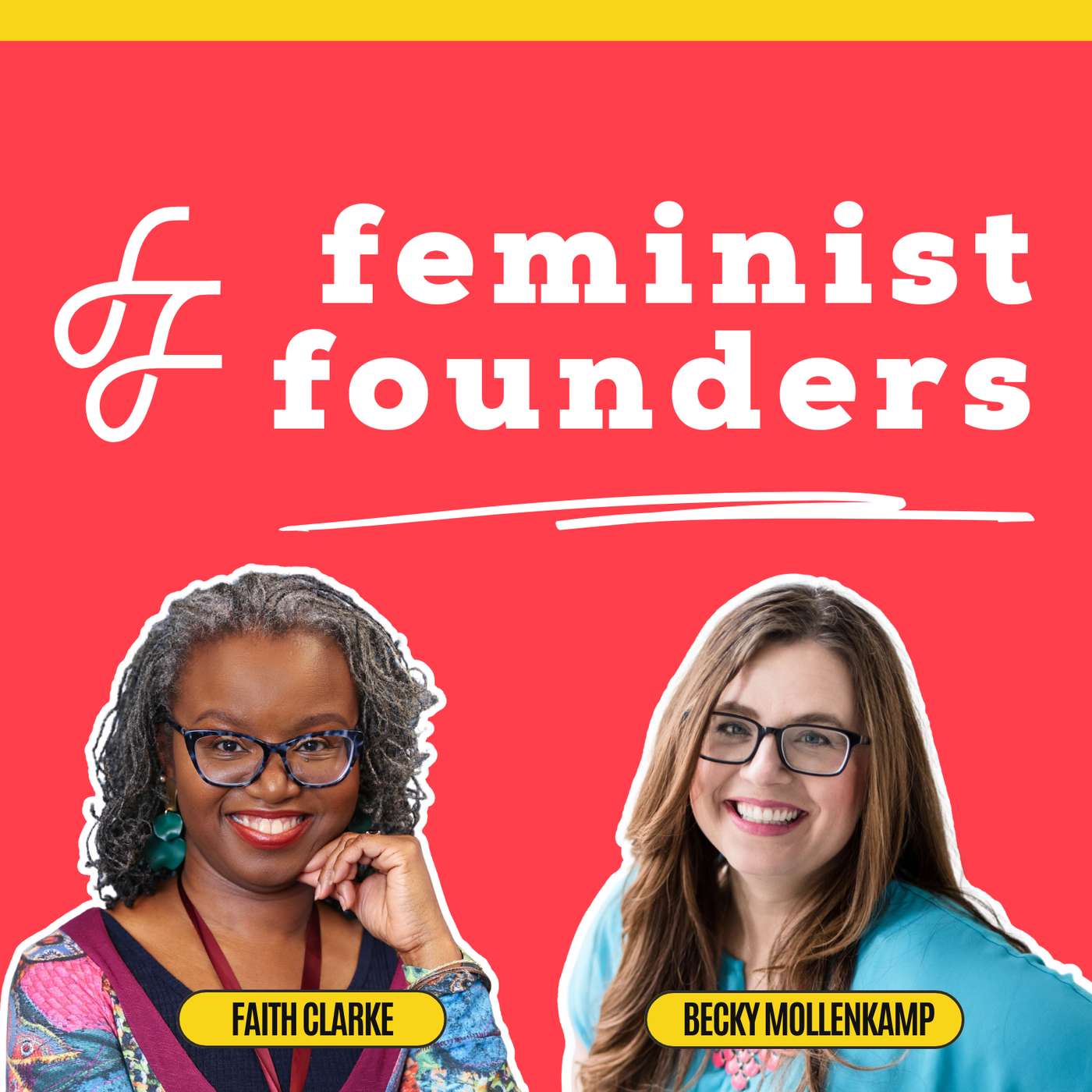
Feminist Founders: Building Profitable People-First Businesses
Becky Mollenkamp
Women Making Moves
Amy Pons
Queer News
E3 Radio
Nonprofit Mission: Impact
Carol Hamilton
Small But Mighty Agency: How to Grow Your Agency
Audrey Joy Kwan | Growth Strategist for Agencies
Disrupt Your Money
Meg K. Wheeler
Small Business Casual
Emily Aborn
Not Too Productive
Becca Rich
Messy Liberation: Feminist Conversations about Politics and Pop Culture
Becky Mollenkamp and Taina Brown
Empowered & Embodied Show
Kim Romain & Louise Neil
The Air We Breathe: Finding Well-Being That Works for You
Heather Sayers Lehman, MS, NBC-HWC, NASM-CPT, CSCS, CIEC, CWP
Careers at the End of the World: Reimagining Ambition, Work, and Your Job Search in Unprecedented Times
Jenn Walker Wall | Work Wonders Careers
The Passionistas Project Podcast | Motivational Stories of Passionate Women
Amy & Nancy Harrington | Women Inspiring Women
Humaning: The Shit We Need to Talk About
Steff Gallante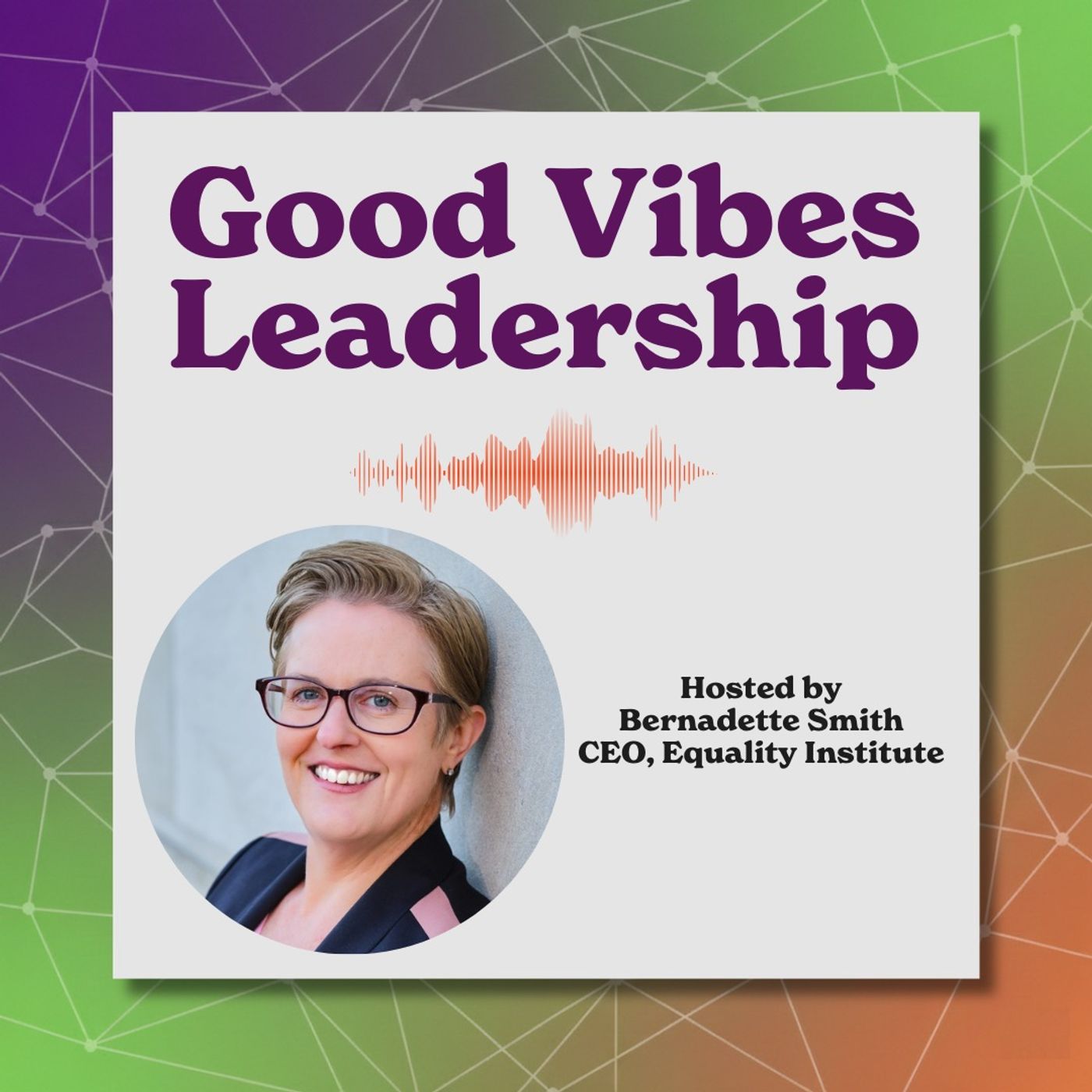
Good Vibes Leadership with Bernadette Smith
Bernadette Smith
The Art Of Imperfect Adulting
Amy Stone
Business as UNusual
BiCurean Consulting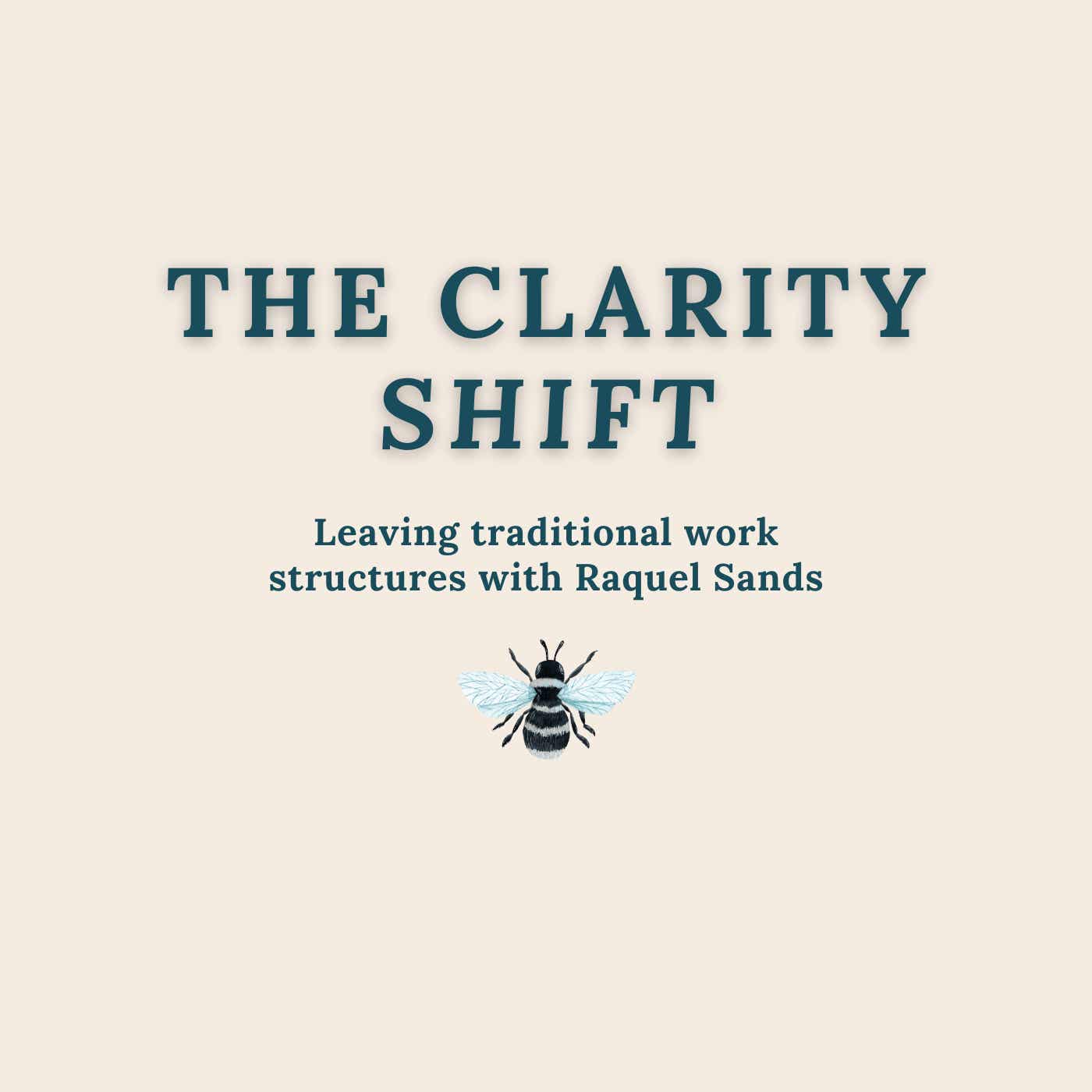
The Clarity Shift
Miriam Raquel Sands | Clarity + Alignment
Cozy Conversations with The Sister Project
Lauren Massarella and Michelle Anderson
Departure Menopause: Neurodivergent-Affirming & Weight-Inclusive Care
Melinda Staehling
The Empress and The Fool
Sarah Dittmore & Kaitlyn Gulock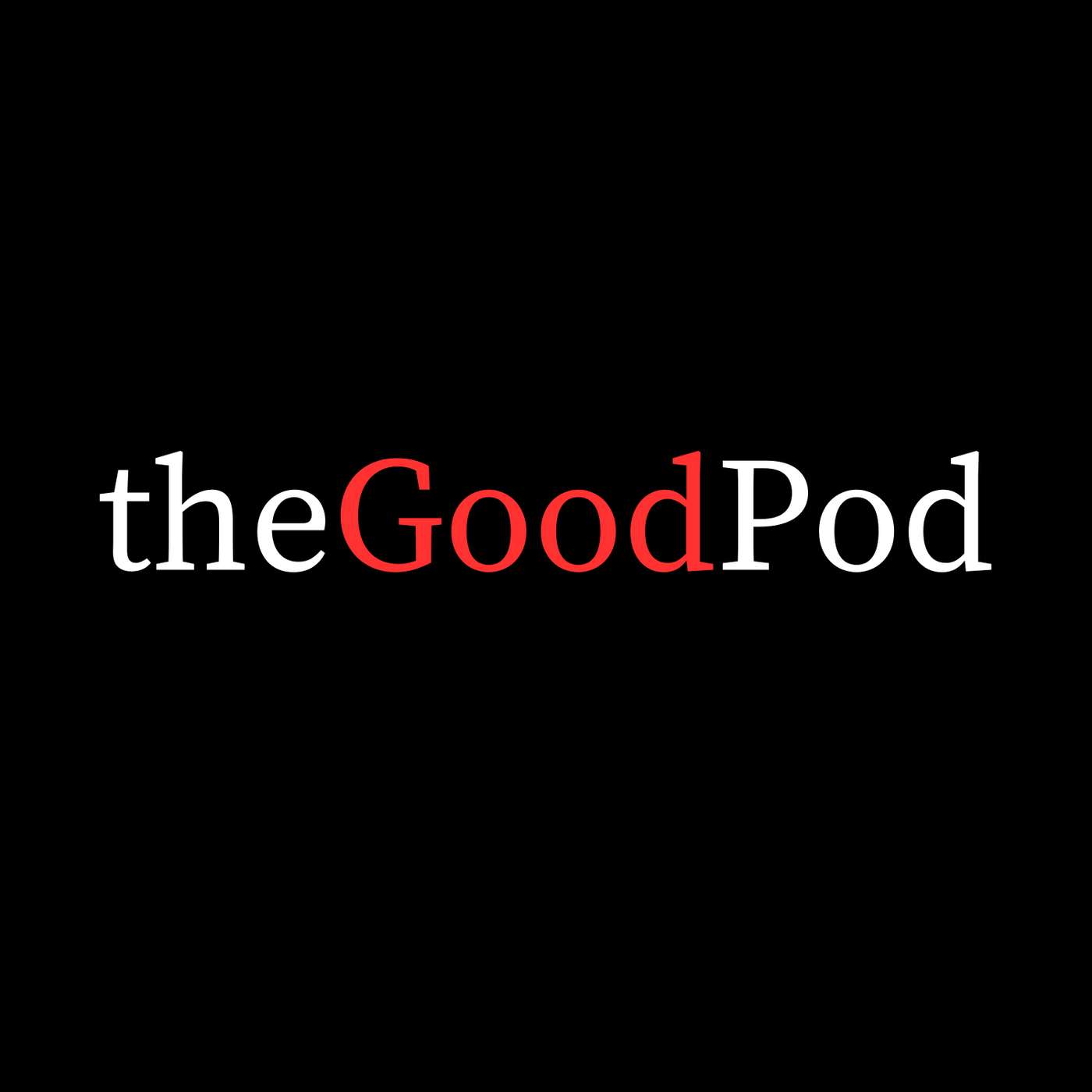
The Good Pod
Jason Reed and Marissa Garza
Gratitude Geek | Business Education for Gen X Women Solopreneurs
Kandas Rodarte | Gen X Growth Coach for Women Solopreneurs
Mental Health Warrior & Neurodivergent Advocate
Amy D. Taylor | Mental Health Warrior & Neurodivergent Advocate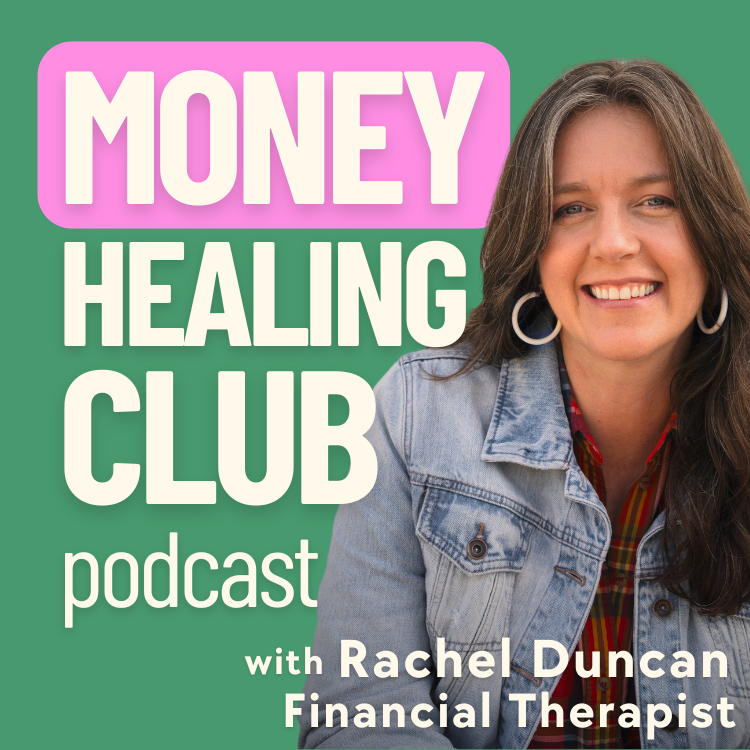
Money Healing Club Podcast
Rachel Duncan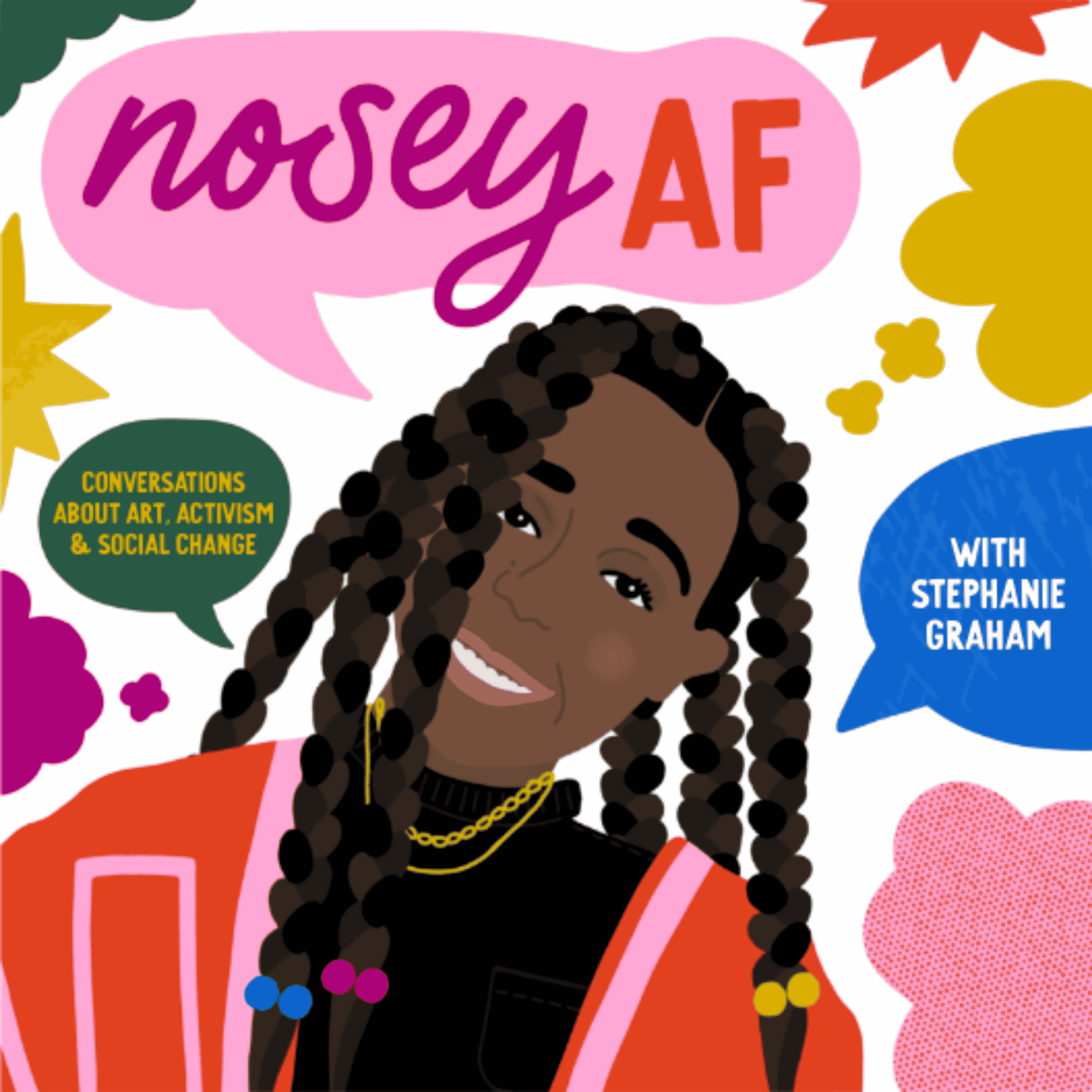
noseyAF: Conversations about Art, Activism, and Social Change
Stephanie Graham
The RestLab with Jordan Maney
Jordan A. Maney
Was It Chance?
Alan Seales, Heather Vickery & Broadway Podcast Network
White Homework
Tori Williams Douglass, Benjamin Faye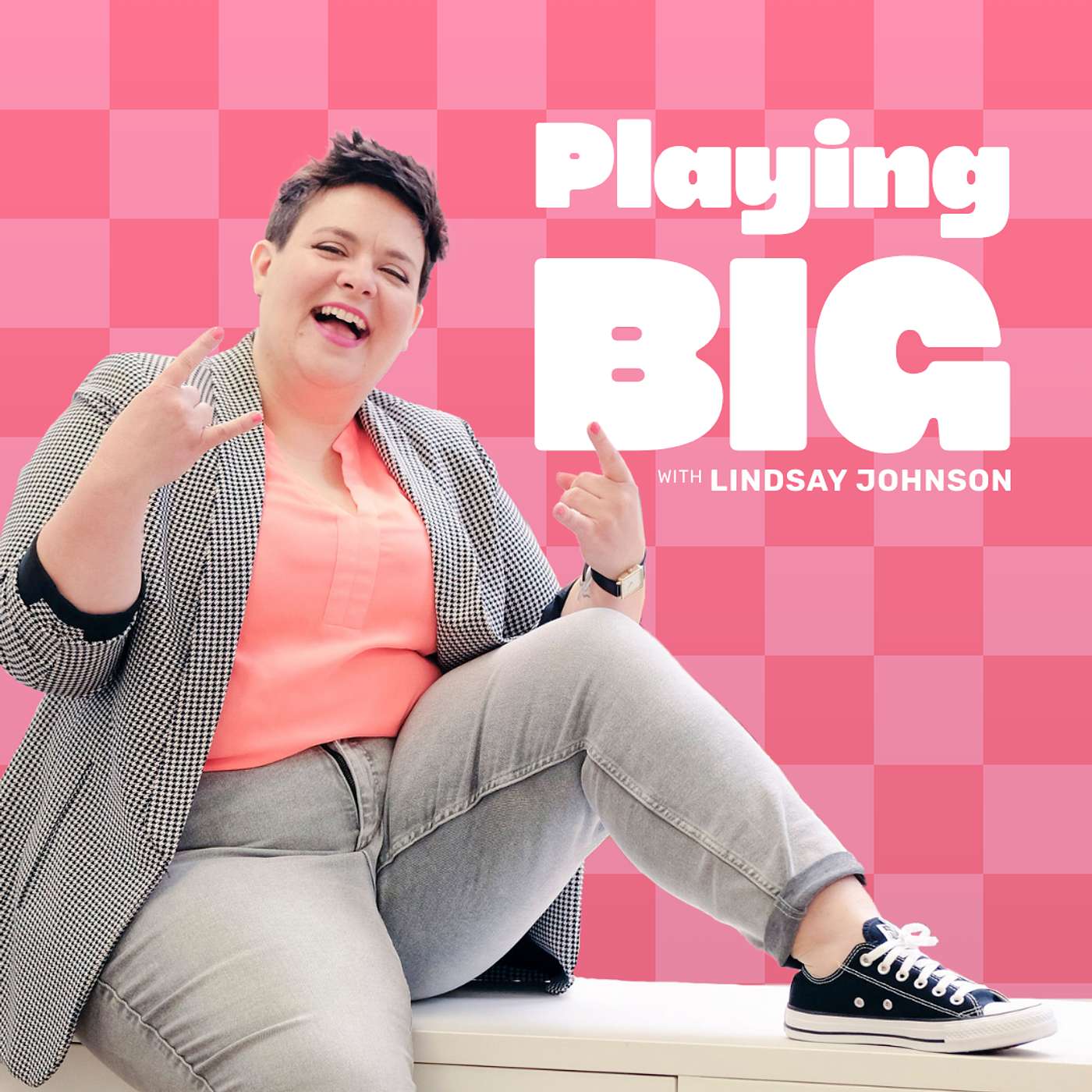
Playing Big with Lindsay Johnson
Lindsay Johnson, The Radical Connector



